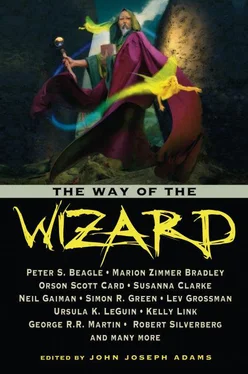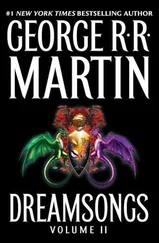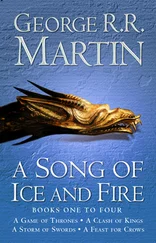The constable breathed in sharply. “Oh, dear God, there are children out there!”
Cabal favoured him with a disapproving glance. “Of course there were children out there. There was a parade. Why wouldn’t there… Oh.” He nodded with realisation. “You mean there are children being murdered. Yes, there are, but that isn’t the interesting thing.”
“What kind of a man are you?”
“The kind who sneaks into mortuaries with the intention of stealing parts of human brains, and isn’t especially put out by the appearance of the unquiet dead — beyond a sort of ‘Oh, what a nuisance’ sort of reaction, anyway.” The two men glared at one another. “Those are all the hints you’re getting,” said Cabal. “I really can’t see you making CID if you can’t reach a conclusion based on them.”
The constable had, in fairness, already reached a conclusion, but that didn’t mean he had to like it. “You’re a necromancer,” he said, quietly repulsed.
“Yes, I am.” Cabal was splendidly unconcerned with the constable’s opinion one way or the other. “And we are a rare breed, which makes all this,” he looked out the window again, “all the more interesting. I come here and the dead spontaneously rise. This really is not normal.”
“Isn’t it?” There was a distinct sneer in the words, and an irony that tottered into sarcasm. It could not have been calculated to irritate Cabal — a man notoriously prone to irritation — with more effectiveness.
“No,” he snapped, rounding on the constable. “No, it isn’t, and I have some actual experience in these areas, rather than that righteous unctuousness in your tone that you fondly believe substitutes for knowledge. Look!” And so saying he took hold of the constable’s collar and pushed him to the window. “There!” Cabal pointed at one group of undead shambling across the road. “There!” He pointed out another group standing aimlessly in the churchyard on the southern side of the town square. “And there!” The mortuary was just off the square, but the town hall was still visible some two hundred yards away. “Do you see?”
The constable angrily shook Cabal’s hand from his collar and glared out of the window. “Monsters,” he said, finally. “Your monsters are everywhere, they… ” He paused.
“You see?” asked Cabal, deciding to ignore the “your monsters” calumny.
“They’re behaving differently,” said the constable slowly, his eyes flickering from one group to the next. “Some are working together, others just stand there.” There was a scream outside. The constable blanched. “Unless somebody gets too close. Why aren’t they all doing the same things?”
Cabal didn’t answer. Instead he had opened his Gladstone and was sorting through its contents. A moment later, he straightened up, snapped a small telescope out to length, and peered out across the town square.
The constable saw he wasn’t going to be getting any immediate answers and ventured upon conjecture. “Are they… like bees? Workers and… drones and… ”
“A gestalt hive mind,” offered Cabal, not lowering his telescope.
“Yes!”
“No. Not least because drones sexually serve the queen, and the idea of those roles having analogies in a horde of walking dead is simply too distasteful to contemplate. More pertinently, however, they are not exhibiting different behaviour; only one area of the growing horde is , and that area is not fixed. These are not human bees; these are puppets of flesh. Observe, and you will note that the walkers become more active, more directed, in an area some thirty feet across. This signifies the area of the puppet master’s attention.”
“The puppet master? Somebody’s controlling them? Who?”
“Yes, there is a puppet master. Yes, he is controlling them and… ” he handed the constable the telescope and pointed across the square, “… he’s the fat bastard on the roof of the town hall.”
“Fat” was an overstatement, but the man visible on the town hall roof was certainly well-built. The constable could see an ursine form capering back and forth along the parapet edge of the flat-roofed building, gazing out across the chaos he had created now and then with what appeared to be a pair of army surplus field glasses.
“Why has he done this? All this death? All these innocent people? Why ?”
Cabal took the telescope back, closed it up with a smart snap, and put it back into his bag. “At the risk of sounding conceited, I believe it’s all about me. It really is too great a coincidence that this fellow decides to embark on such a clottish piece of amateur necromancy at the very same time that I just happen to be skull delving in the local mortuary.”
“He’s trying to impress you?” The idea horrified the constable. “What sort of… ”
“No, no, no,” said Cabal, and made a haha sort of noise that may have been a laugh, or it may have been a nervous tic. “He’s trying to kill me. Not the most efficient way of setting about it, but I can imagine how all this might appeal to a certain type of personality. Not a very clever one, though.”
“Amateur? He managed to raise an army of the dead!”
“Oh, that?” Cabal sniffed dismissively, as if this unknown enemy had raised an army of chinchillas. “Any fool can do that. In fact, only a fool would do that. That is a ritual known as the Ereshkigal Working, and no necromancer with an ounce of wit who isn’t an avowed nihilist would want anything to do with it.”
Constable Copeland was not overly interested in what was à la mode this year in necromancy. He was watching the quick legging it from the dead. “That's the last of the survivors out of the square. If they have any sense, they’ll barricade themselves in their homes until the army gets here. Those things won’t stand a chance then.” He nodded with desperate assuredness at Cabal. “We can just sit this out, can’t we?”
Cabal shook his head, and left the window to perch on the edge of a desk. He gestured for Copeland to sit by him, and this he did with a sense that Cabal had approximately a bathful of ice-cold water to throw on those hopes. As, indeed, he did.
“Constable,” Cabal began, “this is a reasonably-sized town, yes? About two hundred thousand people?” Copeland nodded, and Cabal continued, “In a conurbation of this size, about twelve people die every day. Their bodies remain viable for Ereshkigalian resurrection for about a month. Assume that half are cremated within the first week after death, and that half of the remainder can’t get out of their graves. That’s optimistic, by the way. The dead are very good at exhuming themselves.”
Copeland opened his mouth to ask how Cabal could know such a thing, before realising how foolish that would sound, so he closed it again.
“Therefore,” continued Cabal, “in addition to the scattering of deaths that the Working caused, there are approximately another hundred and fifty five corpses around the place that will also be up and about by now. Each will attempt to kill the living. Every time that they succeed, the fresh corpse will be added to the sum of their army. If you have ever wondered what a geometrical progression looks like, you need only look out of that window. So, to answer your question, no, we cannot just ‘sit this out.’ ”
There was a crash from downstairs that startled Copeland to his feet. “They’re out of the morgue!”
“Right,” said Cabal with an air of getting down to work. “First things first. Avoid being killed by undead. That’s very important. Then, deal with that idiot before he inadvertently wipes out the human race. Also quite important.”
“Wait.” The constable took Cabal by the arm. “I can’t take this in. You really mean this is… this could be Doomsday?”
Читать дальше












